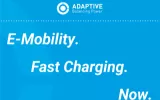The value of search engine optimization (SEO) in higher education is growing due to technological advancements changing how we teach and learn. Effective search engine optimization (SEO) can help students find course materials and instructors disseminate their findings to a wider audience. This essay takes the stance of a college lecturer to discuss the value of search engine optimization (SEO) in the classroom. We will investigate how search engine optimization (SEO) might improve teaching and learning conditions and bring significant gains for universities and their faculty through interviews and study. We'll look at how other universities use SEO and see what works and doesn't. The hope of this essay is that readers will come away with a deeper appreciation for SEO's function in higher education and how it might aid in pursuing academic and institutional goals.
To begin, what is search engine optimization?
"SEO" refers to "search engine optimization," which enhances a page or website's visibility in search engine results. Search engine optimization (SEO) can assist a company's bottom line by increasing website traffic and leads. If you want more people to see your business or website, SEO can help you get there. Many companies use search engine optimization (SEO) to attract new clients and boost revenue. Your website can benefit from SEO, which is employed by many websites. Websites of all stripes—commercial, non-profit, online retail, and academic—can benefit from search engine optimization techniques. SEO is employed to aid in raising a website's profile.
Benefits of Search Engine Optimization for College Students
Search engine optimization, or SEO, increases a site's organic search engine rankings. Using search engine optimization (SEO), universities can increase the exposure of their published course materials and research articles. This exposure can facilitate students' access to course materials and the discovery of research publications published by instructors. Having their work more widely known and recognized can also assist professors' careers. Students can devote more time to their studies when they don't have to waste time looking for relevant course materials and publications. Saving time and energy can make the classroom run more smoothly for everyone.
Questions and Answers with College Teachers about Implementing SEO in the Classroom
Four university professors who have incorporated SEO into their courses were interviewed to help us better grasp the function of SEO in higher education. Professors in many disciplines, such as computer science, information science, health sciences, and engineering, were consulted. By speaking with educators across disciplines, we could better understand the scope of SEO's impact on higher education and the unique difficulties and advantages of implementing it. In-depth, semi-structured interviews lasted between 30 to 60 minutes, and we asked follow-up, free-form questions after that. We decided to use semi-structured interviews so that we could keep our questions uniform across professors but still tailor our follow-ups to their individual responses.
Academic Institutions That Make Use of Search Engine Optimization
Several examples of highly successful institutions that extensively used SEO were discovered. For instance, Purdue University has been utilizing search engine optimization (SEO) and content marketing to increase the visibility of its scholarly articles and attract a wider audience of prospective students and business patrons. In addition to offering courses and textbooks, Purdue has also started using its website to provide high-quality instructional resources like VR simulations. Increased website traffic and new partnerships are only two indicators of how much SEO has contributed to Purdue's success. The use of search engine optimization (SEO) by educational institutions to raise the profile of course offerings was another trend we discovered. Stanford University, for instance, is utilizing a mixture of search engine optimization (SEO) and artificial intelligence (AI) to generate reading lists and article recommendations for lecturers. These technologies allow professors to quickly and easily compile reading lists and online course materials, which in turn aids students in navigating Stanford's extensive course catalog.
Potential Pitfalls of Search Engine Optimization (SEO) in the Classroom
We observed that the most significant barrier to effectively implementing SEO into higher education is the potential need for individual faculty members to receive training in SEO and gain expertise in its optimal use. For this reason, many educators want assistance in order to reap the full benefits of search engine optimization (SEO). This is especially important for schools with a smaller online presence but needs to utilize search engine optimization. Professors with little to no internet presence may find it challenging to use SEO and immediately get positive results. The fact that SEO only updates in real-time is one of its limitations that can reduce its usefulness. There is no discernible effect on academic standings.
The potential of search engine optimization (SEO) in the classroom
More traffic, increased visibility, and enhanced course materials are just a few benefits that higher education search engine optimization (SEO) may offer academics and colleges. The more people who visit a site, the more people will be able to benefit from it and utilize its resources. Increasing its exposure is essential to improve the number of individuals who can access a website's content or use its services. With better course materials, students can devote less effort to finding the information they need and more time to actually learn. We also discovered that SEO helps educators connect with a wider audience, not only students. Professors may utilize SEO to boost the discoverability of their scholarly works, exposing them to a wider audience. This is especially helpful for researchers who have received few citations and hence may be less well-known in the academic community.
Conclusion
SEO's importance in higher education will rise as technological advancements alter our learning. SEO can be useful for academics, from facilitating student access to course materials to maximizing the impact of researchers' work. In this piece, we discussed how search engine optimization (SEO) is used in higher education and how it may aid in the work of both teachers and institutions. We also discussed some advantages and disadvantages of employing search engine optimization (SEO) in higher education. This article has provided readers with a deeper appreciation for the value of SEO for academic institutions and a greater understanding of how it may aid individual instructors and departments in their pursuit of excellence.















